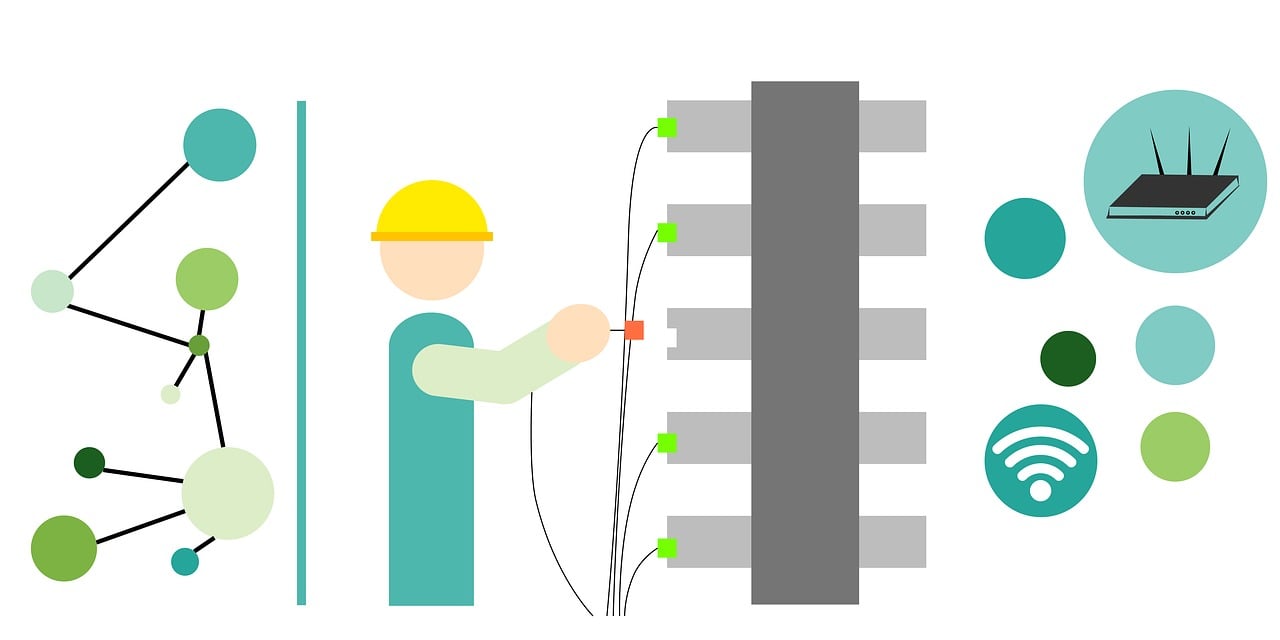Let’s dive into the fascinating world of networking equipment to understand once and for all the difference between two key devices: a router and a router. This topic is important for anyone who wants to not just use the internet, but understand how it works.
Basics: What is a Router and Router?

A router is a device that connects multiple networks together, such as your home Wi-Fi to the Internet. Its job is to transfer data from one network to another by choosing the best route. Routers can be either wired or wireless, providing internet connectivity for all devices on the network.
A router (Routing Switch), on the other hand, is a more specialised device. Its main function is to determine the most efficient way to transfer data between different network segments. Routers are most often used in corporate or large networks where higher level traffic management is required.
What’s the difference?
Functionality: The main difference lies in the functions. A router provides connectivity between networks, whereas a router optimises routes within a network or between network segments.
Applications: Routers are most commonly found in home and small office networks, providing users with access to the Internet. Routers, on the other hand, are used in large corporate networks for more sophisticated traffic management.
Security and Management: Routers offer more options for configuring network security and traffic management than routers. They can include firewall, VPN, and other data protection features.
Configuration complexity: Because of their highly specialised functionality, routers require more in-depth networking knowledge to configure and manage, while routers are often designed for quick and easy setup by the user.
Comparison of Key Technical Features: Routers vs. Routers
| Parameter | Router | Router |
| Data transmission speed | Up to 3.2 Gbps (model dependent) | Up to 10 Gbps or more (depending on model) |
| Wi-Fi standards | 802.11a/b/g/g/n/ac/ax | Depends on network settings |
| Safety features | Firewall, WPA2/WPA3 | Advanced security features, integration with corporate systems |
| VPN support | Restricted | Supported (including various protocols) |
| Traffic management | QoS (Quality of Service) | Advanced management, traffic prioritisation |
| Scalability | Restricted | High (modular architecture) |
| Throughput | Depends on the model | High, support for multiple interfaces |
Conclusion: What kind of device do you need?
The choice between a router and a router depends on your needs. If you need to connect your home or small office to the Internet and provide wireless connectivity for multiple devices, a router is the ideal choice. For larger organisations that require sophisticated management of network traffic, a router should be preferred.
How Choosing the Right Equipment Affects Your Network: Tips for Making an Informed Decision
Assess your needs: Before you make a decision, it is important to have a clear understanding of what tasks the device should fulfil. For a home or small business, a standard Wi-Fi router will be sufficient in most cases. If you run a large organisation with multiple subnets, you will need a router with advanced management and security features.
Don’t forget about security: Network security is a critical aspect. While most modern routers offer basic security features such as firewall and DDoS protection, routers can offer more advanced features, including integration with enterprise security systems and support for various VPN protocols.
Consider future scaling: Your network may grow and change over time, so it’s important to choose a device that can adapt to future needs. Routers with the ability to connect additional wireless access points or routers that support modular architecture can provide the flexibility you need.
Think about performance: To maintain high connection speeds and quality of service (QoS), you need to consider the technical specifications of your device. Check for support for Wi-Fi standards (such as 802.11ac or 802.11ax for routers), bandwidth, and the ability to prioritise traffic.
The choice between a router and a router depends on many factors, including network size, security requirements, traffic management needs, and budget. It is important to carefully evaluate your current and future needs in order to make a choice that will ensure the reliability, security and performance of your network. Regardless of your choice, remember that proper configuration and regular software updates play a key role in ensuring secure and efficient network operations.
Understand the differences between a router and a router, and start saving today! Go to reBITme.com to learn more and get a cashback on your next choice of networking equipment. Your network can be not only powerful, but profitable too!




